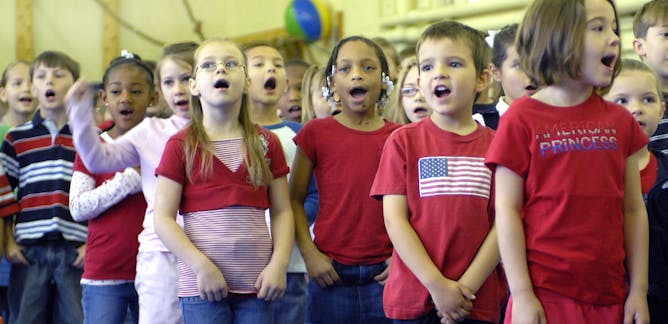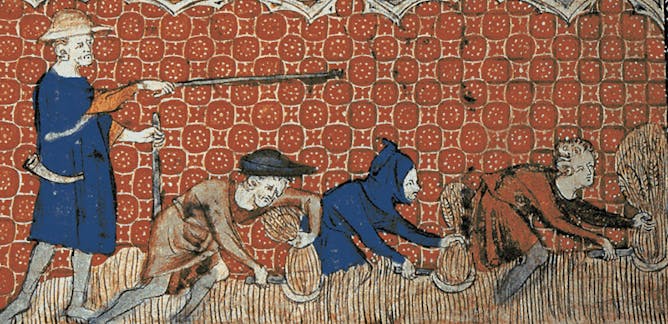|
The Conversation US published over 1700 articles this year: all of them from academic experts, on subjects ranging anthropology to zoology and from AI to zombies.
We have gathered together here ten of the stories that were most read by the public, both on our own site and on the other media websites - from the Washington Post to CNN, and from Intellectual Takeout to the Punxsutawney Spirit - that regularly republish our stories.
As the end of the year approaches, we want to ask you, our loyal readers, to take a moment and let us know which of these stories stood out for you. Cast your vote here and let us know what you think.
Voting closes Monday - and we'll be revealing the results next week. Thank you!
|
Popular stories
|

Laurie Marhoefer, University of Washington
We have an ethical obligation to stand against fascists and racists in a way that doesn't help them.
| |

Nicholas Dodman, Tufts University
Twitter recently blew up with posts wondering about the feline fascination with taped squares on the ground. An animal behavior expert explains it's not magic that draws Fluffy to the #CatSquare.
|

Colleen Burge, University of Maryland, Baltimore County
Oysters grow in seawater and filter their food from it, so how do you shield them from waterborne diseases? Scientists are working to develop strains that are resistant to a fast-spreading herpes virus.
| |

Steven M. Demorest, Northwestern University
Children with difficulty singing can be labelled as 'nonmusical' by parents, teachers and pop culture. This toxic idea of 'talent' can deprive people of music's benefits for the rest of their lives.
|

Charles R. Venator-Santiago, University of Connecticut
Over the years, Puerto Ricans have in fact been granted three different types of U.S. citizenship, but questions about their rights and equal treatment as citizens still remain.
| |

Brad Christerson, Biola University; Richard Flory, University of Southern California – Dornsife College of Letters, Arts and Sciences
A Christian movement led by popular independent religious entrepreneurs, often referred to as 'apostles,' is changing the religious landscape of America.
|

Bert Spector, Northeastern University
He campaigned on the notion that his business experience would equip him to 'make America great again,' but running a family company is poor training for the presidency.
| |

Joshua A.T. Fairfield, Washington and Lee University
The companies that make our digital devices think – and act – like they still own them, even after we've bought them. Are we becoming digital serfs?
|

Jean Twenge, San Diego State University
According to a new analysis, the number of US teens who felt "useless" and "joyless" grew 33 percent between 2010 and 2015, and there was a 23 percent increase in suicide attempts.
| |

Christopher P. Brown, University of Texas at Austin
Kindergarteners are under tremendous pressure – doing as many as 15 academic activities in a day, with a shorter recess time. What is the long-term impact?
|
|
|